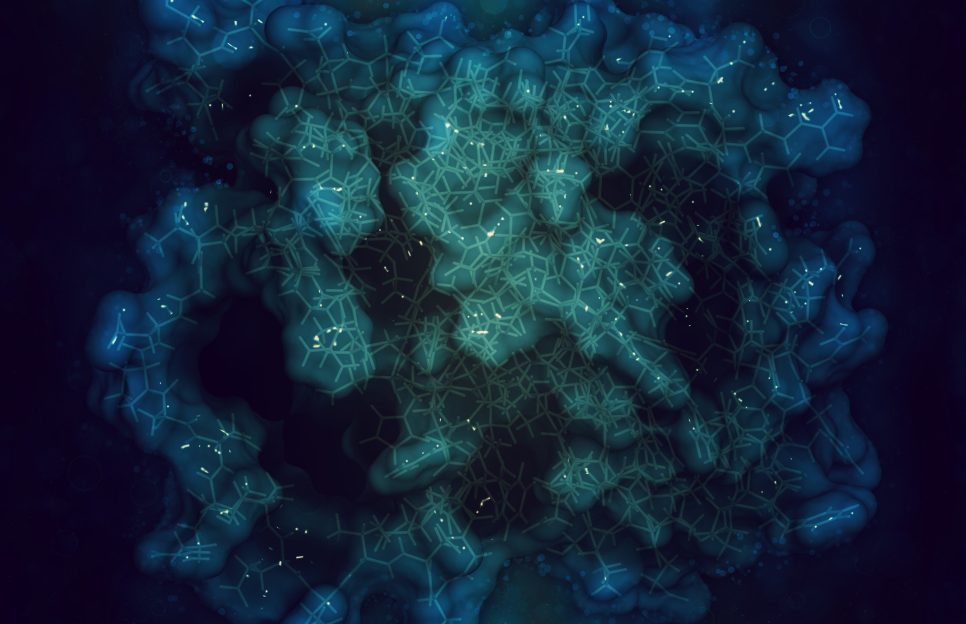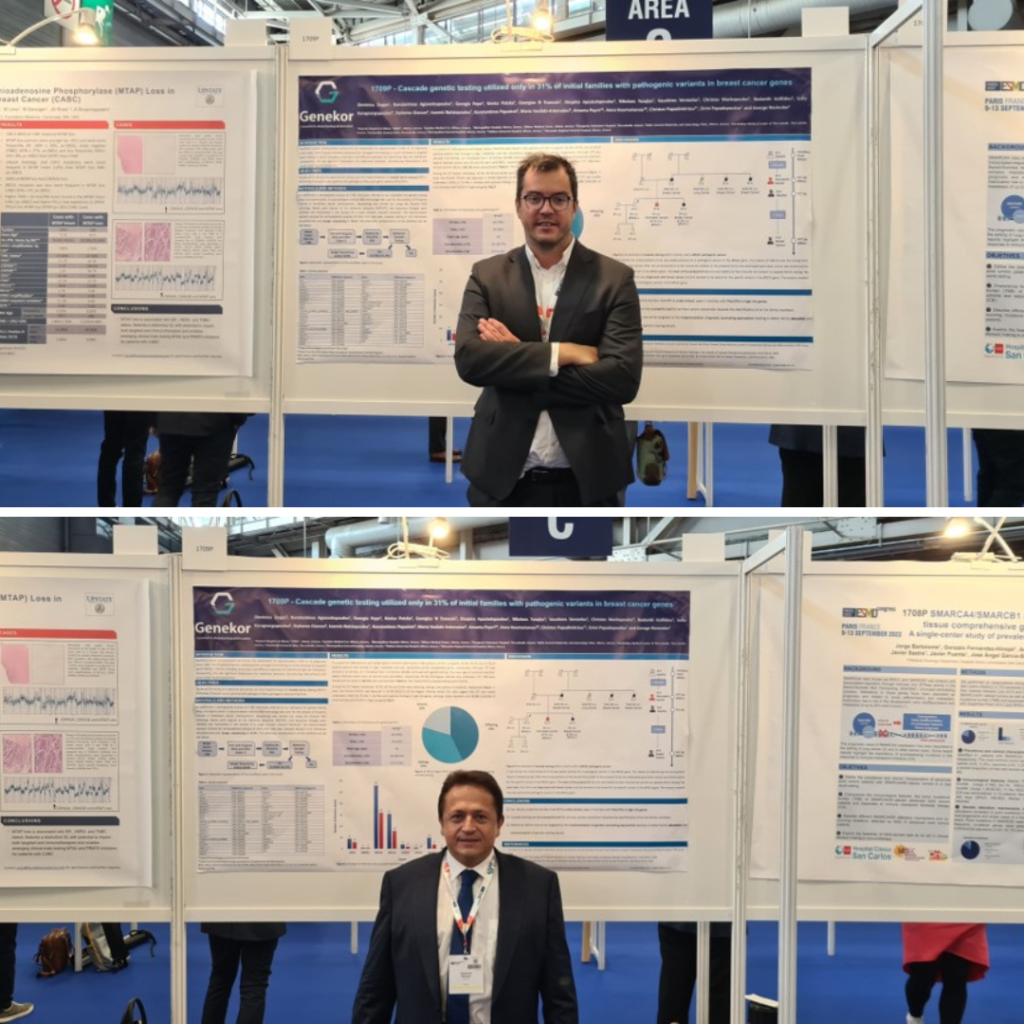


Stay tuned and follow the latest developments and news in Molecular Oncology.

The study by the Genekor Scientific Team on “Cascade genetic testing utilized only in 31% of initial families with pathogenic variants in breast cancer genes” was presented at ESMO CONGRESS 2022 in the form of a Poster by Doctors Ziogas Dimitrios (Pathologist-Oncologist A Oncology Clinic Laiko Athens General Hospital) and Giassas Stylianos (Pathologist-Oncologist, Director B, Oncology Clinic, Iasso Hospital).

The aim of this study is to examine the clinical use and implementation of cascade family testing (CFT) in the families of breast cancer patients with pathogenic/likely pathogenic variants (PVs/LPVs).
In a cohort of 1785 patients with breast cancer, PVs/LPVs were found in 362 patients (20.3%). In specific, 52.2%, 25.1%, and 22.7% of positive patients had findings in high-, moderate- and low- penetrance cancer susceptibility genes, respectively. Although, CFT was advised in all families, 117 individuals from 113 families (31.2%) continued with genetic testing. The mean ages of probands and first degree relatives tested were 46 and 40 years (p<0.0001), respectively. Of the first-degree relatives who underwent CFT, 70% were female and the 105/117 (89.7%) were asymptomatic. The median time to cascade testing was 9 months.
Among the 117 tested individuals, 42.7%, 36.7% and 20.6% were offspring, siblings, and parents of probands, respectively. In total, the familial PV/LPV was detected in 53.0% (62/117) of first-degree relatives tested.Our data suggest that CFT was mostly undertaken (104/113, 91.4%) in families with positive findings in high-risk genes, although these represent only 55.0% (104/189) of initial families with PV/LPV in high-risk genes.